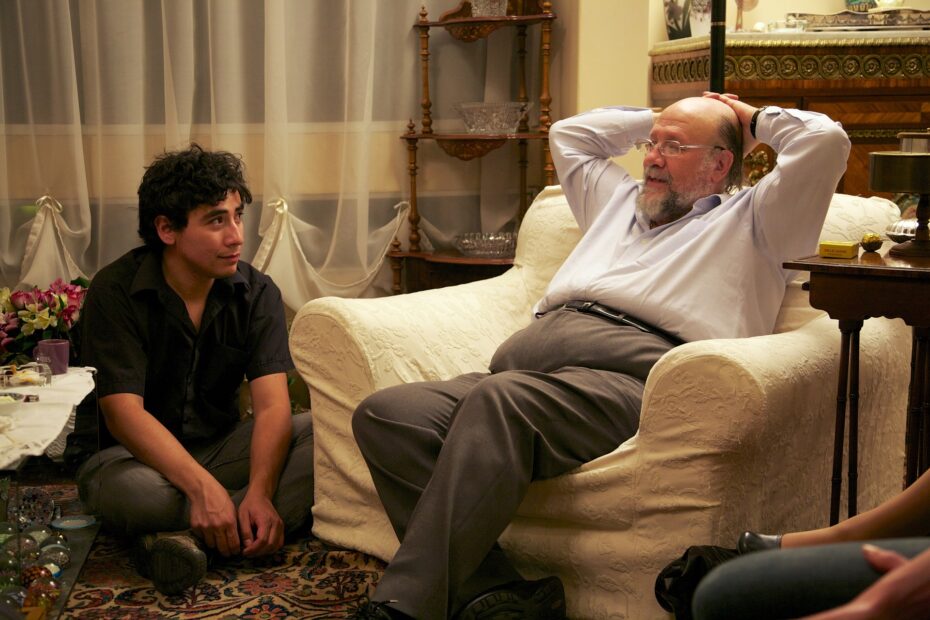It is critical to remember that duties in the family are reciprocal: there are duties parents owe to the children and the entire family. And there are children’s duties to their parents. Parents also have obligations to their children. For example, they are responsible for ensuring their children have a safe and caring place to live, meeting their basic needs, and helping them grow and develop.
Here are some more details on children’s duties to their parents:
Respect:
Respect means following parental rules and using the right words and tone when talking to them. It also means being thankful for their help and advice and considering their feelings and thoughts.

Obedience:
The most important part of a child’s duty to their parents is obedience. Obedience is the act of obeying parental commands, regardless of age or maturity level. The child has to follow their parents’ rules as long as they don’t go against their basic rights. So children should respect their parents.
Children are bound to obey their parents. The only exception to this is when their judgments or commands are against the commands of God. Children need a guide and a ruler that will take them through the path of life. Obedience is divine, and there are consequences for not obeying your parents. When you have to obey God rather than your parents, you have to respond to them humbly and respectfully. When your parents say no to what you want, you should put your wants and wishes on hold.
Gratitude:
It is the children’s duty to express gratitude to their parents through words and actions, such as saying “thank you.” They should also help out around the house and express gratitude for what their parents have done for them.
Helpfulness:
Children can contribute to the household by completing age-appropriate chores. For example, cleaning their room, setting the table, or helping with grocery shopping.
Consultation and communication:
It’s important for children to keep their parents informed about their activities and whereabouts. This will reduce a lot of stress and worry for the children, especially as they get older and have more independence. This can involve sharing plans and schedules and checking in with parents when out with friends. It is the duty of children to consult their parents.
Parents are natural counselors, family teachers, and all-around guardians. It is the children’s duty to treat their parents as such. Children are expected to come to their parents for consultations. And their responses must be respected because they are like a light that guides you in the dark. Children should confide in their wisdom because, as an old adage says, “ what the elderly sit down and see, even while standing, you cannot see it.” Why? Because you are young and inexperienced. They have walked the same path you are on in life. They knew all the turns, the dangers, and their difficulties. Be open with your parents, don’t conceal anything from them. Especially as it concerns marriage and occupation.
Kindness.
In old age, parents display a high level of weakness. And it is expected that children should be kind to their parents in their old age. Don’t allow them to suffer because of their age-related deficiencies. They were once like you. Don’t make fun of their mistakes, and don’t correct them harshly to avoid hurting their feelings. Some children become mad at their parents once they become successful in life. Some get irritated by their inability to read and write. This is wrong because your parents made you what you are.
Support:
Children can emotionally support their parents by being there for them when they feel down. Listening to them when they are talking and showing understanding and empathy. Children can also provide practical support by helping with tasks or errands.
Imitate a Good Example of Your Parents.
Be a reflection of your parents. If your parents have raised you in a godly way, don’t deviate from that way before their eyes. Follow their religious character as far as it conforms to God’s will. Endeavor to live by their good example. A wicked child of godly parents lives at the peril of his soul.
Overall, the duties of children to their parents involve showing respect, obedience, gratitude, helpfulness, good communication, and support. It’s important to remember that these duties should be mutual and that parents also have responsibilities to their children.

What does the Bible say about children’s duty to their obedience to their parents?
The Bible teaches that children are to honor and obey their parents. Here are a few relevant passages:
Exodus 20:12: Honor your father and your mother, that your days may be long in the land that the Lord your God is giving you.
Ephesians 6:1-3: “Children, obey your parents in the Lord, for this is right.” ‘Honor your father and mother’ (this is the first commandment with a promise), ‘that it may go well with you and that you may live long in the land.” Obeying parents is commanded by God: In Ephesians 6:1-3, Colossians 3:20, and Exodus 20:12, the Bible tells children to obey their parents. This is not a suggestion or a preference but a directive from God.
Obeying parents is right: In Ephesians 6:1, Paul says that obeying parents is “right,” implying that it is in line with God’s will and plan.
Obeying parents is a way to honor them: The command to honor one’s parents is closely tied to the command to obey them. In Ephesians 6:2, Paul cites the commandment to “honor your father and mother” and notes that it is the “first commandment with a promise.
According to Ephesians 6:3 and Exodus 20:12, obeying one’s parents can bring blessings such as long life and everything going well with you.
Read more of our articles here: https://abundanceandkiddies.com/
Conclusion
Overall, the Bible teaches that children’s duties are to honor and obey their parents. Giving honor to parents is a way to show respect and gratitude to them. This is also a way to receive blessings and wisdom from God. It’s important to note that the Bible also teaches that parents are responsible for caring for and nurturing their children. And also modeling godly behavior for them.
“My son, keep your father’s commandment and do not abandon your mother’s teaching,” Proverbs 6:20 says. And Proverbs 1:8 says: “Hear, my son, your father’s instruction, and forsake not your mother’s teaching.” Obeying parents is linked to wisdom: Proverbs 1:8 and 6:20 both link obeying one’s parents to gaining wisdom. Children’s duty is to learn valuable lessons and make wise choices by following their parents’ instructions and guidance.
Shop Children’s Kitchen Kits here
Shop Kishoo Children wear here
Miniclasix Children sweaters here
Children’s Bikes and Bicycles here
